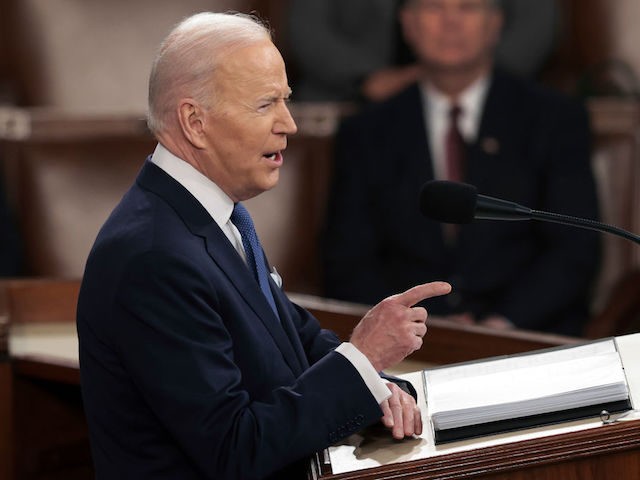In his 2022 State of the Union address on Tuesday night, President Joe Biden announced a ban on Russian aircraft from American airspace.
Biden was following the lead set by the European Union (EU) and Canada, which closed their airspace to Russian flights on Sunday.
“We are joining with our European allies to find and seize their yachts, their luxury apartments, their private jets. We are coming for your ill-begotten gains. And tonight I am announcing that we will join our allies in closing off American air space to all Russian flights, further isolating Russia and adding an additional squeeze on their economy,” Biden said.
The EU said earlier on Tuesday that it asked the United States to join its ban on air travel by Russian nationals, including those who are legal EU residents.
“It doesn’t matter whether they are EU residents, if they are Russian nationals, they will be covered. Russian nationals or a Russian company cannot charter, own or control a plane that will be flying into the EU, out of the EU or overflying the EU. So that’s the rule,” a senior EU official told Reuters on Tuesday morning.
This statement echoed comments by European Union President Ursula von der Leyen, who said on Sunday that Russians “won’t be able to land in, take off, or overfly the territory of the EU, including the private jets of oligarchs.”
Several individual European countries – including Austria, Bulgaria, the Czech Republic, Estonia, Germany, Italy, Latvia, Lithuania, Luxembourg, Romania, and Slovenia – plus the United Kingdom have announced individual bans on Russian aircraft over the past few days.
Canadian Transport Minister Omar Alghabra announced an immediate ban on Russian flights through Canadian airspace on Sunday to “hold Russia accountable for its unprovoked attacks against Ukraine.”
On Monday, Canada ordered two Russian planes out of its airspace after they violated the ban, claiming to be “humanitarian” flights.
Canada vigorously enforced the ban, launching an investigation of an Aeroflot flight from Miami to Moscow that violated Canadian airspace on the same day the ban was announced and threatening an “appropriate enforcement action and other measures to prevent future violations.”
Aeroflot did not offer any flights to Canada before the ban, but many of its planes passed through Canadian airspace on their way to the United States.
“Some foreign governments have privately questioned why the United States did not move faster to ban Russian planes, as have some U.S. lawmakers,” Reuters reported, noting that Canada and Europe effectively blocked most Russian air traffic from reaching the United States anyway with their overflight bans.

COMMENTS
Please let us know if you're having issues with commenting.